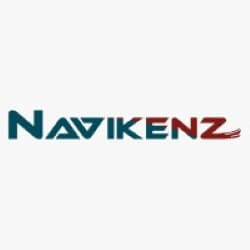
In the rapidly evolving landscape of technology, Artificial Intelligence (AI) has emerged as a game-changer across various industries. The pharmaceutical sector, too, has embraced this revolutionary technology to enhance its business operations and drive innovation. With the market for AI in pharma projected to experience exponential growth in the coming years, organizations need to understand the profound impact AI can have on their industry. In this blog, we will delve into the top four use cases of AI in the pharmaceutical sector, highlighting the benefits it offers to companies operating in this domain.
Use Case 1: AI in Drug Discovery
One of the most significant ways AI is transforming the pharmaceutical industry is through its impact on the drug discovery process. By leveraging advanced algorithms and biochemistry knowledge, AI is revolutionizing the way new drugs are discovered. Here are some key benefits of using AI in drug discovery:
Unbiased Approach: AI models adopt an objective and unbiased approach to drug discovery by not relying on predetermined targets. This allows for a more comprehensive exploration of potential drug candidates.
Time and Resource Savings: AI enables virtual drug screening, drastically reducing the time and resources required for identifying promising drug candidates. This efficiency can accelerate the entire drug discovery process.
Personalized Treatment Options: AI-powered computer vision models can accurately analyze patient reports, assisting physicians in creating personalized treatment options. This capability has the potential to significantly improve patient care and outcomes.
Case Study: AstraZeneca, a leading pharmaceutical company, has successfully utilized AI and Machine Learning (ML) to elevate its drug discovery process. By streamlining the identification of potential drug targets and optimizing the development process, AstraZeneca has harnessed the power of AI to drive innovation in the pharmaceutical industry.
Use Case 2: Computer Vision for Drug Manufacturing
AI-based computer vision systems have found extensive applications in drug manufacturing, particularly in quality assurance and error prevention. The advantages of employing AI in this context include:
Efficient Quality Control: Computer vision-enabled systems can swiftly and accurately examine drugs on conveyor belts, promptly detecting any defects or anomalies in shape, color, and packaging. This capability ensures that only high-quality products reach the market.
Contamination Prevention: By reducing human touchpoints in the manufacturing process, AI minimizes the risk of contaminations, thus enhancing product safety. Pharmaceutical companies can rely on AI to maintain stringent quality standards.
Case Study: DevisionX has developed an AI-powered computer vision system capable of detecting defective medicines on conveyor belts. By ensuring high-quality production, this technology significantly contributes to improving drug manufacturing processes.
Use Case 3: Predictive Forecasting
AI plays a pivotal role in predicting pandemics, seasonal illnesses, and other healthcare trends. In the pharmaceutical industry, accurate predictive forecasting enables companies to optimize their supply chains, resulting in improved operational efficiency. Here are some key benefits of using AI in predictive forecasting:
Improved Supply Chain Planning: AI-powered predictive models help pharmaceutical companies prepare for demand fluctuations and match supply with demand effectively. By accurately forecasting future requirements, companies can streamline their operations and avoid shortages or excess inventory.
Case Study: Emory University and Google have employed AI to predict sepsis outbreaks. This proactive approach allows healthcare providers to allocate resources more efficiently, ultimately leading to improved patient care.
Use Case 4: AI in Clinical Trials for Drugs
AI has brought significant advancements to clinical trials, revolutionizing various stages of the process. The contributions of AI in this domain include:
Candidate Recruitment: By analyzing historical records, diseases, and demographic data, AI can identify suitable candidates for drug trials, enhancing trial efficiency and reducing recruitment challenges.
Trial Design: AI leverages vast amounts of data from previous trials to extract meaningful insights, aiding in the design of effective clinical trials. This data-driven approach increases the chances of successful outcomes.
Trial Monitoring: By combining AI with IoT-enabled wearable devices, real-time monitoring of patients during treatment becomes possible. This provides valuable insights into the effectiveness of treatments, allowing for timely adjustments if necessary.
Now, let's explore how leading pharmaceutical companies are leveraging AI to drive innovation and generate increased Return on Investment (RoI).
Johnson & Johnson: Pioneering AI in Pharma
Johnson & Johnson (J&J), a prominent pharmaceutical company, has been at the forefront of AI implementation since 2015. The collaboration between J&J and IBM's Watson Health has allowed J&J to harness the power of AI for processing vast amounts of healthcare data and providing evidence-based responses in natural language to professionals.
a. Robotic Surgery: J&J established Verb Surgical, a joint venture with Google Verily, to develop AI and Machine Learning (ML)-powered surgical robots. These robots are designed for performing minimally invasive medical surgeries, revolutionizing surgical procedures.
b. AI in Drug Discovery & Development: J&J capitalizes on AI to remain competitive in drug discovery, design, and development. By combining their expertise with intelligent AI strategies, J&J actively works towards creating new drugs, treatments, and surgical methods. Precision medicine is a focus area for J&J, aiming to provide personalized healthcare services based on patients' genetic profiles, leading to improved patient outcomes and reduced healthcare costs.
c. AI for Diagnosing Diseases & Drugs: J&J explores the application of AI in diagnosing diseases and predicting drug responses. By utilizing platforms such as WinterLight Labs, J&J can monitor neuropsychological details to detect and understand Alzheimer's disease. WinterLight's AI platform analyzes speech-based data, facilitating the automatic analysis of Alzheimer's.
Bayer AG: Harnessing AI in Cardiovascular and Oncology Drug Discovery
Bayer AG, a global pharmaceutical company, has embarked on a collaboration with Exscientia, a leading AI-driven drug discovery company. This partnership focuses on utilizing AI to accelerate the discovery of small molecule drugs targeting cardiovascular disease and oncology.
a. AI-powered Drug Discovery: Exscientia's Centaur Chemist™ platform, powered by AI algorithms, plays a pivotal role in automating and optimizing the design of novel drug candidates. By combining evolutionary computing and deep learning techniques, the platform enhances productivity and efficiency in the drug discovery process.
b. Targeted Projects: Under the collaboration agreement, Bayer and Exscientia are working on specific projects with predetermined targets in cardiovascular and oncology therapeutics. AI enables the precise identification of suitable drug targets and lead structures, expediting the drug discovery timeline.
c. Potential Benefits: The collaboration aims to achieve project milestones earlier, reducing the time and resources required for identifying and optimizing potential drug candidates. This improvement in efficiency leads to overall productivity enhancement.
d. Financial Agreement: As part of the agreement, Exscientia may receive up to €240 million, including upfront and research payments, milestones, and potential sales royalties. Bayer's commitment to this financial agreement demonstrates their recognition of the value and potential impact of AI-driven drug discovery.
e. Advancing Digital Transformation: Bayer's collaboration with Exscientia highlights their commitment to digital transformation in research and development. By leveraging the power of AI, Bayer aims to simplify and accelerate the drug discovery process, ultimately improving patient outcomes and addressing critical healthcare needs.
Roche Holding AG: Embracing AI Investment
Roche Holding AG, one of the largest global pharmaceutical and diagnostic companies, has actively leveraged AI technology to enhance its drug development operations. The acquisition of Flatiron Health in 2018 strengthened Roche's capabilities in maintaining vast amounts of oncology data, leading to more accurate diagnoses and treatment plans through machine learning systems.
Additionally, Roche collaborated with IBM and Sensyne Health for predictive analytics projects related to diabetic retinopathy and chronic kidney diseases, respectively. These partnerships demonstrate Roche's commitment to harnessing AI's potential in predicting disease outcomes and enhancing clinical trials.
Pfizer: Harnessing AI for Advanced Healthcare Solutions
Pfizer, one of the largest multinational drug development organizations in the United States, has partnered with IBM to accelerate the adoption of AI technology. Leveraging IBM Watson, a cloud-based platform, Pfizer utilizes vast amounts of medical data to enhance early cancer detection and discover innovative therapies.
By harnessing the power of AI, Pfizer aims to revolutionize healthcare through:
Advanced Data Analysis: Pfizer utilizes AI algorithms to analyze millions of medical data points, including patient records, diagnostic images, and genomic information. Processing this wealth of data enables the identification of patterns and indicators contributing to early cancer detection. This facilitates timely interventions and the development of targeted treatment strategies.
Novel Therapy Discovery: AI-driven analysis helps Pfizer identify potential breakthrough therapies for various cancers. By mining extensive medical data, Pfizer aims to uncover new treatment targets and innovative approaches to combat the disease. This accelerates the development of novel therapies that have the potential to improve patient outcomes and prolong lives.
In conclusion, the pharmaceutical industry is witnessing the transformative power of AI across various domains. From drug discovery and manufacturing to predictive forecasting and clinical trials, AI is revolutionizing the way pharmaceutical companies operate. Leading companies like Johnson & Johnson, Bayer AG, Roche Holding AG, and Pfizer are actively leveraging AI to drive innovation, enhance research and development processes, and ultimately improve patient outcomes. By embracing AI, these companies are at the forefront of the industry, bringing cutting-edge solutions to the healthcare landscape.
Experience the transformative power of AI in the pharmaceutical industry with Navikenz. Partner with us to unlock the full potential of your data, accelerate innovation, and transform patient care. Join us in shaping the future of medicine with AI-driven excellence.
